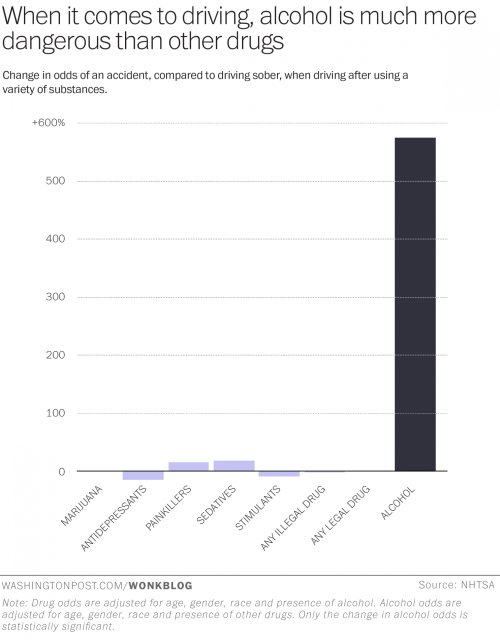Kevin Sabet has an recent interview with German Lopez in VOX. Most of it is the usual stuff he peddles, like wanting to somehow reduce some of the harmful effects of prohibition while keeping marijuana illegal, bemoaning the greed involved in commercial legalization while completely ignoring the overwhelming greed of prohibition forces. At one point in the interview, Kevin indulges in a bit of wishful thinking…
There’s no doubt that there’s some truth to the momentum for legalization that has grown in the past 10 years or so.
But I think what goes up must also come down. I think these things come in cycles. In the 1970s, we had the exact same thing happen with support for legalization. Maybe not as much as we have now, but we did see a dramatic change from the 1950s to the 1970s — in the same way you’ve seen a change from the 1990s to the 2010s. And that reversed for all sorts of reasons after the 1970s. It might reverse this time, but it might not.
I don’t think he believes it, either, but it’s an interesting point to disuss.
Jacob Sullum addresses it in Anti-Pot Activist on Support for Legalization: ‘What Goes Up Must Come Down’ and crunches some of the numbers to show that the pattern is closer to natural dips in an overall movement rather than cycles.
I have a few more thoughts on this…
First, when the dip in support happened in the 1970s, there was a whole lot going on – reaction to the various youth movements of the time, the Vietnam War, and the beginning of culture wars. I think the reduction in support for legalization had less to do with marijuana than it did with other factors.
Today is a much different time, and marijuana is no longer associated in the minds of the population with one cultural group that can be separated and demonized.
Also, in the 1970s, the government had a much greater control over the dissemination of information to the population, so when the drug war was ratcheted up, their propaganda had very little organized countering (except in specialized populations). And at that time, the media and other institutions were even more likely to support the official government line without question. This allowed for the creation of an atmosphere where even the discussion of legalization was considered some kind of antisocial and dangerous behavior.
Despite this, the anti-legalization forces were still only able to effect a temporary drop in support for legalization.
Today, of course, the dynamics are drastically different. The internet and unlimited means of information distribution have made suppression of information pretty much impossible. Reformers have a legitimate voice that can be heard, even over the full might of the federal government.
Now, might there be dips? Of course.
With major change, there is likely to be temporary shifts in public opinion up and down. As we see legalization expand, there’s always the potential for a tiny minority of stupid people making a public spectacle of themselves, which could cause a temporary blowback. But that’ll quickly settle out.
You could conceivably make a case that there will be some scientific discovery that will change public opinion about marijuana, but that is extremely unlikely. Prohibitionists have tried time and time again using junk science to try to derail support, always unsuccessfully. And we know enough about cannabis to be pretty certain that there is no as-yet-undiscovered danger of any significance.
There will always be those who oppose legalization. But the idea of a cycle that will leave legalization support marginalized once again — just a pipe dream.


